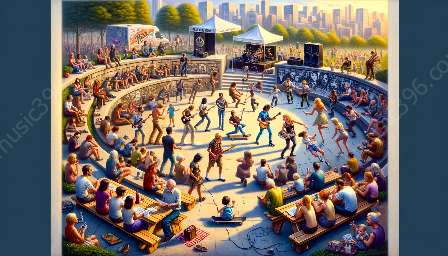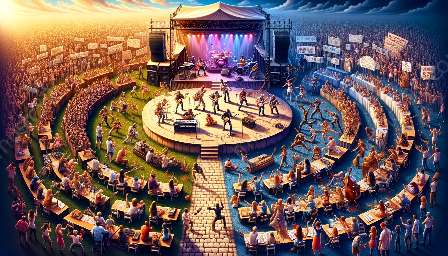Rock music has played a pivotal role in the formation and expression of youth identities throughout the 20th century. From its inception as a rebellious and revolutionary genre, to its evolution into a powerful cultural force, rock music has influenced the way young people define and assert themselves in society. This topic cluster explores the profound impact of rock music on youth identities and the various ways in which it has shaped culture, social movements, and individual expression.
The Birth of Rock Music
Rock music emerged in the mid-20th century as a fusion of various musical styles, including rhythm and blues, country, and gospel. Its roots can be traced back to the post-World War II era, when young people sought an outlet for their frustrations and desires for social change. With its driving rhythms, rebellious attitude, and electrifying energy, rock music quickly captured the imaginations of youth around the world.
Cultural Rebellion and Liberation
Rock music became a powerful symbol of cultural rebellion and liberation for young people. The lyrics and themes of rock songs often reflected the struggles and aspirations of the youth, addressing issues such as social inequality, political oppression, and personal freedom. Through its raw and unapologetic expression, rock music provided a voice for disenfranchised and marginalized youth, empowering them to challenge the status quo and demand change.
Empowerment and Individualism
One of the defining characteristics of rock music is its celebration of individualism and self-expression. The genre encouraged young people to embrace their unique identities and reject conformity. From the flamboyant styles of glam rock to the anti-establishment ethos of punk, rock music allowed youth to explore and assert their personal identities in ways that were previously unheard of.
Rock Music as a Social and Political Force
Rock music became a symbol of social and political movements, influencing the attitudes and behaviors of youth worldwide. The genre served as a soundtrack for various social causes, from the civil rights movement to anti-war activism. Songs such as Bob Dylan's


















































